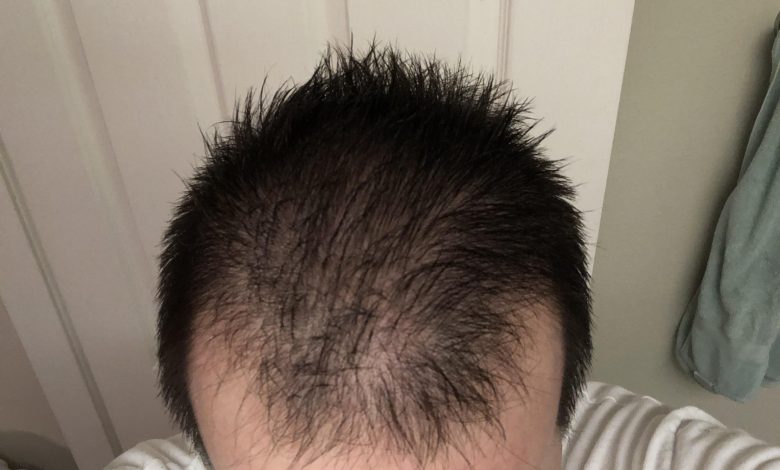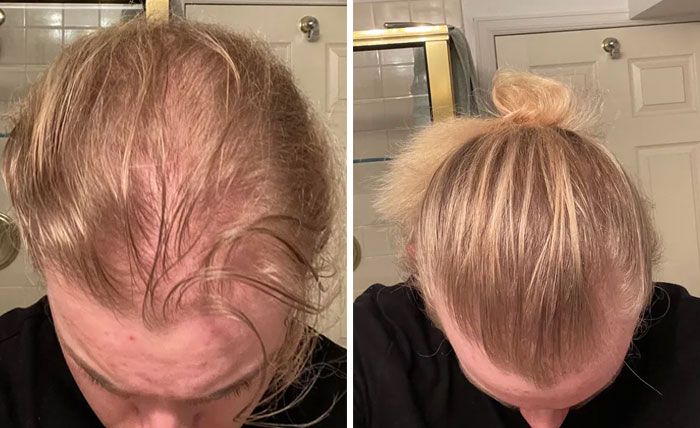Does Spironolactone Cause Hair Loss?

Hair loss (alopecia) is a fairly common occurrence. While it’s more prevalent in older adults, anyone can experience it, including children. It’s typical to lose between 50 and 100 hairs a day, according to the American Academy of Dermatology (AAD). With about 100,000 hairs on your head, that small loss isn’t noticeable. New hair normally replaces the lost hair, but this doesn’t always happen.
Anagen effluvium refers to hair shedding that arises during the anagen or growth stage of the hair cycle. This is in contrast to telogen effluvium or hair shedding that arises during the telogen or resting stage of the hair cycle. Hair loss can develop gradually over years or happen abruptly. Depending on the underlying cause, it may be temporary or permanent.
Medications can lead to both types of hair loss (telogen effluvium and anagen effluvium). Telogen effluvium is the most common form of drug-induced hair loss. It usually appears within 2 to 4 months after taking the drug.
What is Spironolactone?
Spironolactone is a medication used to treat certain patients with hyperaldosteronism (the body produces too much aldosterone, a naturally occurring hormone); low potassium levels; heart failure; and in patients with edema (fluid retention) caused by various conditions, including liver, or kidney disease. It is also used alone or with other medications to treat high blood pressure.
Spironolactone was discovered in 1957 and was introduced in 1959. It is on the World Health Organization’s List of Essential Medicines. It is available as a generic medication.
How spironolactone works
This drug belongs to a class of drugs called aldosterone antagonists (blockers), or potassium-sparing diuretics. A class of drugs is a group of medications that work in a similar way. These drugs are often used to treat similar conditions.
This drug works by blocking aldosterone activity. Aldosterone is a chemical made by the body that can cause water retention. This makes certain heart, kidney, and liver conditions worse. By blocking aldosterone, your body won’t retain fluid. This process also stops potassium from being excreted by your body. This drug may lower your blood pressure by blocking aldosterone’s effect on your blood vessels.
Does spironolactone cause hair loss?
No, spironolactone does not cause hair loss. In fact, in a small study involving four patients, spironolactone at the dose of 200 mg daily reduced hair loss by 50%–62.9% and also increased the total number of anagen hairs. Spironolactone generally slows down the production of androgens which results in the slow progression of hair loss caused by androgenic alopecia.
A research letter published in the July 2020 issue of the Journal of the American Academy of Dermatology concluded that off-label use of spironolactone spurs hair growth in women experiencing female pattern hair loss (FPHL).

What are the side effects of spironolactone?
Spironolactone may cause side effects. Tell your doctor if any of these symptoms are severe or do not go away:
• deepening of voice
• diarrhea
• difficulty maintaining or achieving an erection
• drowsiness
• enlarged or painful breasts in men or women
• increased hair growth on parts of the body
• irregular menstrual periods
• restlessness
• stomach pain or cramps
• tiredness
• vaginal bleeding in post-menopausal (‘after the change of life’, the end of monthly menstrual periods) women
• vomiting
Some side effects can be serious. If you experience any of these symptoms, call your doctor immediately:
• blood in stools
• changes in heartbeat
• confusion
• decreased urination
• difficulty breathing or swallowing
• dry mouth, thirst, dizziness, unsteadiness, headache, or other signs of dehydration
• extreme tiredness
• fainting
• flu-like symptoms
• hives
• inability to move arms or legs
• itching
• lack of energy
• loss of appetite
• muscle weakness, pain, or cramps
• nausea
• pain in the upper right part of the stomach
• pain, burning, numbness, or tingling in the hands or feet
• rash
• unusual bleeding or bruising
• vomiting blood
• yellowing of the skin or eyes
If you experience a serious side effect, you or your doctor may send a report to the Food and Drug Administration’s (FDA) MedWatch Adverse Event Reporting program online (http://www.fda.gov/Safety/MedWatch) or by phone (1-800-332-1088).





